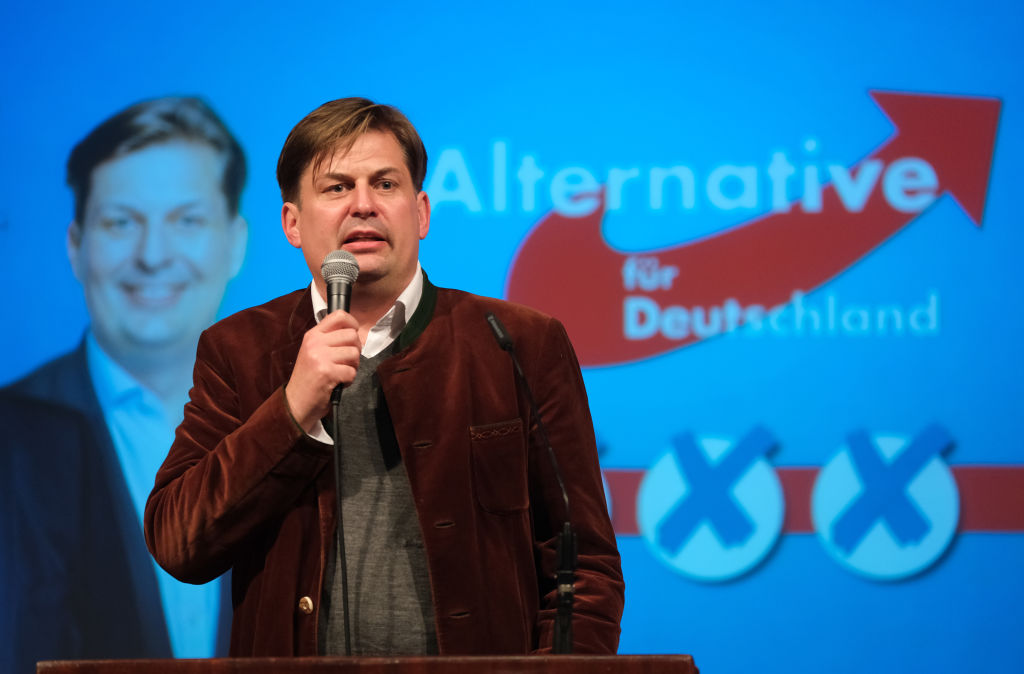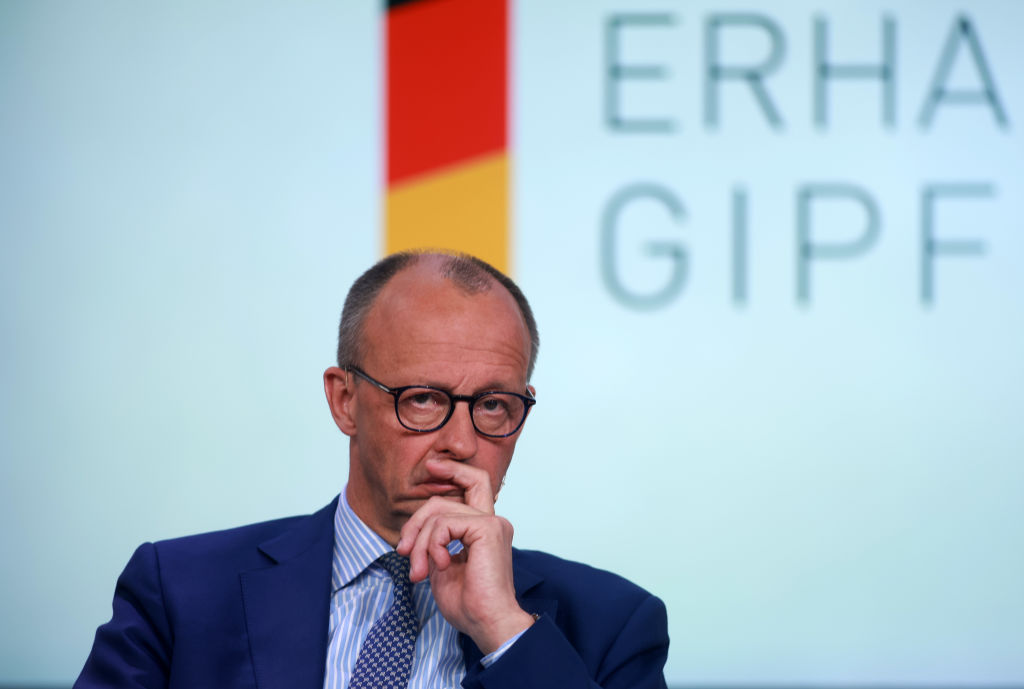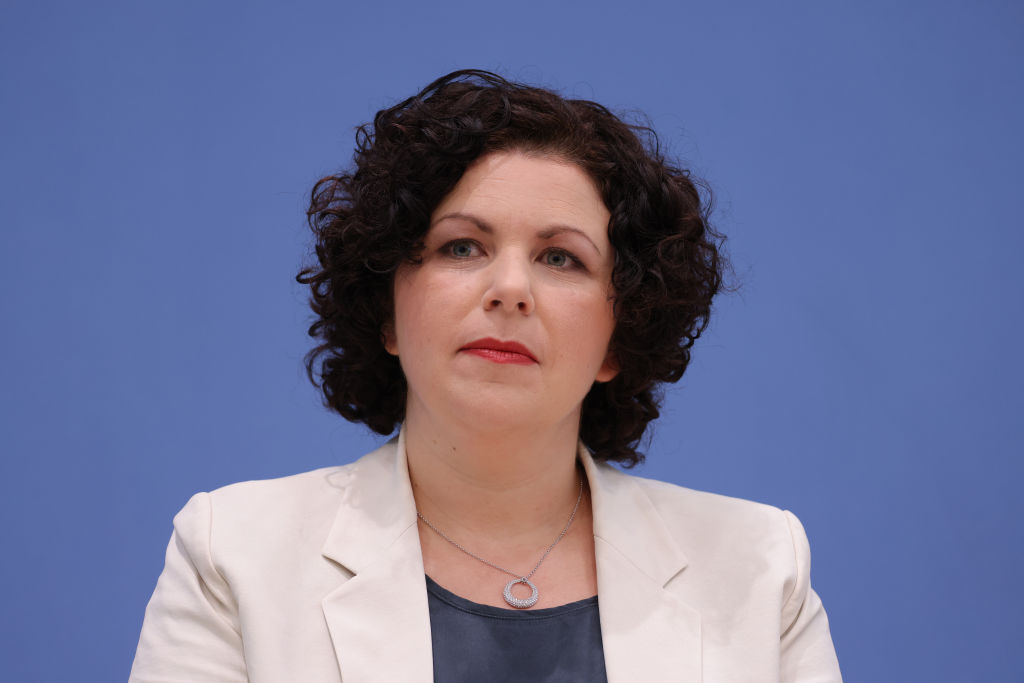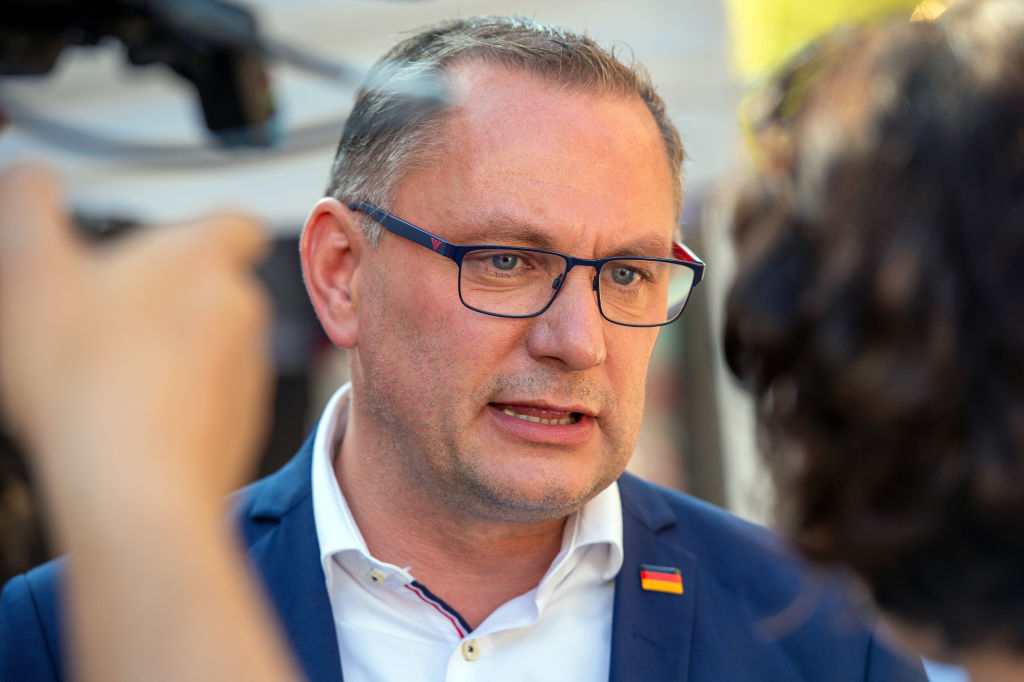A major player in Germany’s populist Alternative für Deutschland (AfD) party should be stripped of all his “fundamental rights” under the country’s Constitution, politicians have been told.
Amid the AfD achieving record polling across Germany, more than 1 million people have signed a petition demanding that the Government strip Björn Höcke, the party’s chief in the State of Thuringia, of his right to vote or take part in politics.
Such a demand is legal under Article 18 of the German Constitution, which gives the Government the right to disenfranchise a citizen if that person is deemed to be “abusing” their rights “to combat the free democratic basic order”.
“This man is a truly dangerous enemy of liberal democracy,” the petition claimed. “Höcke agitates against the free democratic basic order anchored in the Basic Law … and people with a migration background.”
It goes on to repeatedly describe Höcke as a “fascist”, adding that the German public should not be allowed to vote for him in any election.
Fewer than half of Germans support a nationwide ban on the populist Alternative für Deutschland (AfD) party over allegations it is “extremist”, a new poll has shown. https://t.co/BUpUpfYu4f
— Brussels Signal (@brusselssignal) January 12, 2024
The demand for the AfD leader to have his fundamental rights stripped has provoked a mix of outrage and bemusement from those in the party, with Höcke himself describing the situation as “absurd”.
Maximilian Krah, an MEP for the party and its lead candidate for the European elections 2024, noted that the issue appeared to show that those making up Germany’s “political class” do not seem to care for democracy when they do not get their way.
“Imagine if this happened in Russia and not in Germany. Can you imagine the international headlines?” he told Brussels Signal.
“There would be new sanctions against Russia and politicians in Washington and Brussels would call out this abhorrent injustice.
“I am not comparing Russia to Germany, but I am asking a simple question: If we allow a government majority to strip opposition leaders of their basic rights – are we really that far away from becoming an actual dictatorship?
“This is the environment the AfD has to work in now: The more successful we become, the more aggressive the establishment reacts and maybe – just maybe – they don’t care about democracy at all,” Krah added.
“Maybe all they want is to keep their power, no matter how.”
The response from other political party leaders has been more mixed.
Members of the German Greens and far-left Die Linke have voiced conditional support for the petition, often repeating claims that the AfD is a fundamental threat to German democracy that must be banned, either partially or in full.
Those within the centre-right Christian Democrats and Free Democratic Party have appeared less enthusiastic about the implementation of any such ban.
“It makes more sense to present the content of the Höcke AfD so that it becomes clear what his true nature is,” Christian Hirte, the chairman of the Christian Democrats in Thuringia, said.
Things are made more complicated by the AfD’s growing popularity across Germany, with some polls indicating as many as one in four Germans now support the party.
This figure is even higher in the former Communist East, with Höcke’s Thuringia branch of the group regularly polling at 34 to 36 per cent, making it by far the most popular group in his State.
By contrast, the second-most popular party – the hard-left Die Linke – sits at just 20 per cent support.
WATCH: AfD ban could backfire, leading Social Democrat warns.
Read more at https://t.co/3BC2lO7b5q pic.twitter.com/pllQ0pMgpM
— Brussels Signal (@brusselssignal) January 4, 2024





